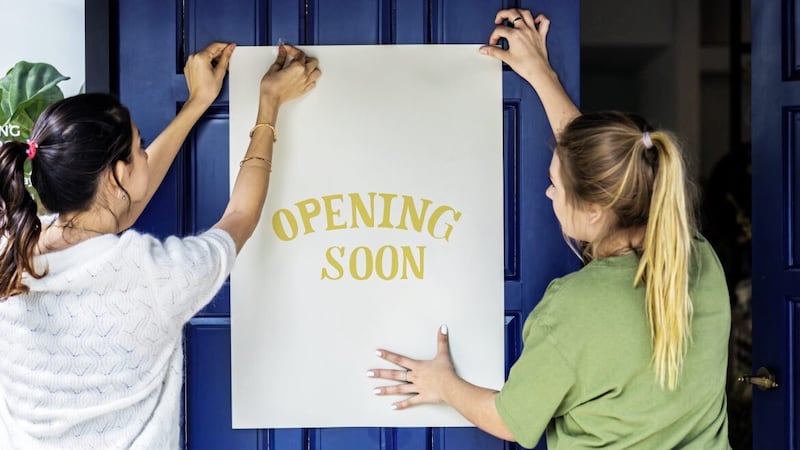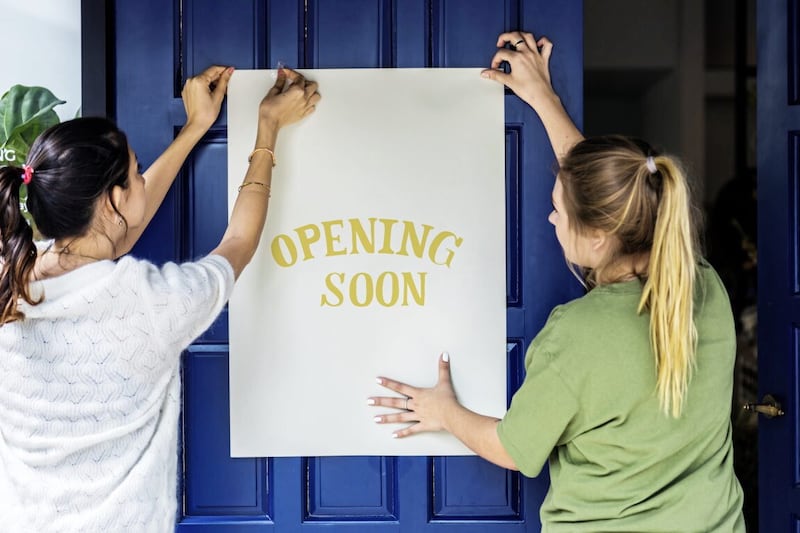ENTREPRENEURSHIP has always seemed like a fairly inclusive career option. Setting up as a sole trader or small business appears open to everyone here, regardless of ability, qualifications, gender or any other identity.
Provided someone has something to sell and a customer wants to buy, in essence, anyone can take the plunge and in Northern Ireland over 6,500 people in 2021 did just that!
The Business Demography Northern Ireland 2021 results estimate that 6,655 businesses were newly registered on the Inter-Departmental Business Register (IDBR) over the 12 months to December 2021. This amounts to a business birth rate (proportion of active businesses) of 10.3 per cent - not bad for a relatively small place.
Why then are 18 governments as members of the Organisation for Economic Co-operation and Development (OECD) now shining such a spotlight on the issue?
The Centre for Entrepreneurship that operates within OECD is busy developing and releasing a number of policies around “Inclusive Entrepreneurship”. Where is the exclusiveness if anyone can join in? Perhaps some of the answer is back with our own statistics. By looking again at the Business Demography Northern Ireland results, it seems that some of the answers are found in the survival figures.
Shockingly in the same year (2021) there were 5,200 business deaths in Northern Ireland, leaving the overall number of additional businesses into our economy standing at just 1,455, which is not such a great figure. The Centre for Entrepreneurship run by OECD places this firmly at the door of exclusiveness.
The centre is highlighting that a number of population groups such as women, seniors, the unemployed and migrants are under-represented in business creation and self-employment. It is a reasonable conclusion therefore, that the quantity of business start ups is lower because these groups are not encouraged as much as they could be.
Yet other groups such as youth often start businesses that tend to have low survival rates indicating that the quality of support offered is also an issue. The objective of their policies on inclusive entrepreneurship is twofold. Firstly, to increase awareness about self-employment to under-represented groups; and secondly, to address market (e.g. information failures, externalities), institutional (e.g. poorly adapted regulatory environments), and behaviour failures (e.g. excessive fear of failure) that disproportionately affect people in under-represented and disadvantaged groups.
Although Northern Ireland did hold the highest five-year survival rate of the four UK regions for registered businesses in 2016, that was seven years ago and pre-Covid. The more recent overall additional yearly business figures proves that we cannot sit back and that entrepreneurial inclusiveness would indeed appear to be a problem here.
The overall annual business birth rates against business deaths certainly makes a strong case for embracing the emerging policies and the target groups that they focus on with consideration required on the quality of support and not just the quantity of businesses being established.
:: Michelle Lestas is an entrepreneur, the published author of “In Business with Yourself” and the recently appointed chair of the Association of Business Mentors for Ireland.








